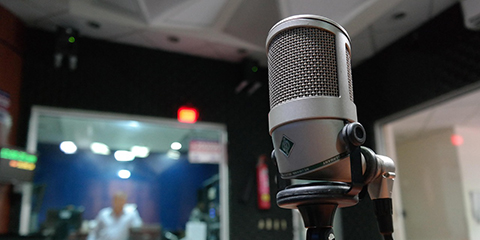Russia slams Pakistan’s Frontier Post for ‘Western bias’; newspaper hits back
JournalismPakistan.com | Published last month
Join our WhatsApp channel
Russia’s embassy accuses The Frontier Post of Western bias; the newspaper defends its independence, saying journalism’s duty is to question power, not please embassies.Summary
ISLAMABAD — A rare diplomatic spat has erupted between Russia and Pakistan’s English-language daily The Frontier Post, after the Russian Embassy in Islamabad accused the newspaper of spreading anti-Russian propaganda and following a Western editorial line. The statement, published on social media platform X, alleged that the paper “can hardly be called Pakistani” because its international news operations are run from Washington. The embassy claimed the publication consistently favored writers critical of Moscow, Russian foreign policy, and President Vladimir Putin, https://www.bbc.com/urdu reported on Friday.
In its statement, the Russian mission said the newspaper’s coverage lacked balance, calling it a “continuous anti-Russia campaign” driven by Western narratives. It added that no recent article in The Frontier Post’s international section had presented Russia in a positive or even neutral light. The embassy also criticized the paper for allegedly ignoring a major Moscow-format consultation on Afghanistan, saying the omission reflected the “Westernized orientation” of its editorial team.
The Frontier Post responded with a firm rebuttal titled “Freedom of Expression Is Not Russophobia,” defending its independence and rejecting what it called an attempt to pressure the press. The paper stated that journalism’s purpose is not to please embassies or repeat official narratives, but to inform the public, question power, and challenge those who seek to control truth.
Managing Editor Jalil Afridi, based in Washington for over a decade, was singled out by name in the debate. The newspaper said Afridi’s reporting from the White House, Pentagon, and State Department had consistently upheld democratic values, human rights, and regional security issues. It added that if such independence makes the paper appear “Westernized,” it takes no issue with that label.
The Frontier Post also rejected claims that it ignored the Moscow-format meeting on Afghanistan, sharing links to its related coverage. It said its reporting has long sought to build understanding between Pakistan and Afghanistan, while urging global powers to help improve conditions for Pashtun communities on both sides of the border.
The editorial reminded readers that The Frontier Post was founded during General Zia-ul-Haq’s military regime in the 1980s and built its reputation as one of Pakistan’s most outspoken and independent newspapers. The publication has a history of investigative journalism that often drew the ire of powerful political and military figures. Its founder, Rehmat Shah Afridi, was once jailed on what he claimed were politically motivated drug charges intended to silence the paper.
The clash between the Russian Embassy and The Frontier Post underscores the growing tension between states seeking narrative control and independent news outlets striving to maintain editorial freedom.
KEY POINTS:
- A diplomatic dispute arose after Russia accused Pakistan’s The Frontier Post of spreading anti-Russian propaganda.
- The embassy claimed the paper’s international coverage is Western-oriented and consistently critical of Moscow and President Vladimir Putin.
- The Frontier Post defended its independence, saying journalism’s role is to inform, not appease foreign powers.
- The Frontier Post highlighted Washington-based Editor Jalil Afridi for promoting democratic values and regional security.
- The newspaper denied ignoring the Moscow-format Afghanistan meeting, providing links to its related reporting on Pakistan-Afghanistan issues.
- The clash highlights tensions between state narratives and independent media, reflecting ongoing challenges for press freedom in Pakistan.

























